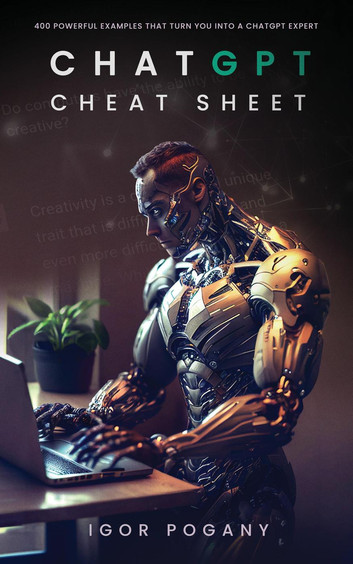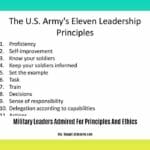“CheatGPT” isn’t an official product, but rather a colloquial term for using AI writing tools like ChatGPT to bypass academic integrity or create content without genuine effort. This guide explores the motivations behind using such tools, the potential consequences, and the ethical dilemmas they present. We’ll also examine the broader impact of AI on education, content creation, and other fields, providing a balanced perspective while ultimately promoting ethical AI practices.
Decoding CheatGPT: What It Is and Why It Matters
“CheatGPT” describes the misuse of AI writing tools like ChatGPT for dishonest purposes. This includes submitting AI-generated text as original work, using AI to complete exams, or other activities that undermine learning and academic honesty. [https://www.lolaapp.com/] This raises complex ethical questions about the value of education, the development of critical thinking skills, and the very definition of authorship.
Understanding the Allure: Why Use CheatGPT?
The allure of CheatGPT likely stems from several factors: academic pressure, looming deadlines, and the desire for quick solutions. Students and content creators alike may be tempted to use AI to circumvent the hard work typically required for academic success or quality content creation. [https://www.lolaapp.com/] This raises important questions: Does AI-generated work truly reflect understanding? Does bypassing the learning process hinder intellectual growth?
Unmasking the Methods: How CheatGPT Works
CheatGPT often relies on superficial manipulations of text, such as replacing letters with similar-looking symbols or subtly rearranging sentence structure. This approach aims to deceive AI plagiarism detectors, but it doesn’t represent genuine rewriting or paraphrasing. Some suspected techniques include:
| Technique | Description |
|---|---|
| Symbol Substitution | Swapping letters for similar-looking symbols from other languages. |
| Word Spinning | Replacing words with synonyms and slightly altering sentence structure. |
| Invisible Characters | Inserting hidden characters that disrupt the AI’s analysis of the text. |
| Sentence Shuffling | Rearranging sentences within a paragraph without changing the words themselves. |
This raises the question of long-term viability. As AI detection methods evolve, these tactics are likely to become less effective.
The Ethical Tightrope: Navigating the Gray Areas of AI Use
The ethical implications of using CheatGPT are substantial. In educational settings, widespread use of such tools could devalue original thought, diminish the importance of developing essential research and writing skills, and erode academic integrity. In the professional world, similar concerns arise about the value of human expertise and creativity. [https://www.lolaapp.com/]
Beyond ChatGPT: The Expanding AI Ecosystem
ChatGPT is just one example within a growing ecosystem of AI tools. Microsoft Copilot integrates AI into workflows, while Grammarly uses AI to enhance writing. Platforms like Monica AI provide access to a suite of AI models. These tools offer undeniable benefits in terms of productivity, but also raise concerns about misuse and over-reliance. [https://www.lolaapp.com/]
| Tool | Primary Function | Potential Benefits | Potential Pitfalls |
|---|---|---|---|
| ChatGPT | Text Generation | Versatile, creative, readily available | Plagiarism, over-reliance, ethical concerns |
| Microsoft Copilot | Workflow Integration | Streamlines tasks, boosts productivity | Decreased skill development, potential job displacement |
| Grammarly | Writing Enhancement | Improves clarity, grammar, and style | Masking poor writing skills, unintentional plagiarism |
| Monica AI | Multi-Model Access | Access to various AI capabilities | Dependence on AI, difficulty discerning quality |
A Shared Responsibility: Shaping the Future of AI
The future of AI depends on responsible development, sensible regulations, and ethical use. We must carefully weigh the benefits of AI against the potential risks, fostering a culture of responsible innovation and critical engagement with these powerful tools. [https://www.lolaapp.com/] Ongoing research and evolving societal expectations will shape how we integrate AI into education, content creation, and everyday life.
Is CheatGPT Legitimate? Unmasking the Truth
The question of CheatGPT’s legitimacy is multifaceted. While the website cheatgpt.co.za itself may be technically legitimate, the purpose of CheatGPT—to circumvent plagiarism detection—raises serious ethical concerns. This section delves into the complexities of this issue, examining the mechanics, ethics, and long-term viability of using CheatGPT.
Decoding the Deception: How CheatGPT Works
CheatGPT primarily relies on symbol substitution, swapping out characters with visually similar counterparts from other languages. This superficial disguise might fool some plagiarism checkers, but it doesn’t constitute genuine rewriting. Is it effective? Probably not in the long run. As AI detection methods advance, CheatGPT’s effectiveness likely diminishes. It’s a temporary workaround, not a sustainable solution. [https://www.lolaapp.com/]
The Ethics of Evasion: Why CheatGPT Raises Red Flags
Even if cheatgpt.co.za is considered safe, using CheatGPT undermines academic integrity. It encourages shortcuts instead of genuine learning. Submitting manipulated text as original work is deceptive, regardless of whether it bypasses plagiarism detectors. [https://www.lolaapp.com/]
Beyond CheatGPT: Embracing Ethical AI
Instead of relying on deceptive practices, consider ethical AI writing tools. These tools can help improve writing and research skills without compromising academic integrity. They offer a path toward genuine improvement and learning, rather than a short-lived illusion of success.
How to Access GPT-4 for Free: Unlocking AI Power on a Budget
Interested in exploring the power of GPT-4 without the cost of ChatGPT Plus? This section reveals legitimate ways to access GPT-4 for free, outlining the benefits and limitations of each method.
Free GPT-4 Access: Methods and Limitations
Several platforms offer free (or low-cost) access to GPT-4:
| Platform | Access Method | Limitations |
|---|---|---|
| Bing | Integrated Search | May have usage caps or feature restrictions. |
| Hugging Face | Specific Models Access | Model availability and free tier limitations vary. |
| Nat.dev | Experimental Free Tier | Usage and feature restrictions likely. |
| Perplexity AI | “Copilot” Feature | Specific usage details require further investigation. |
| Forefront AI | Platform Access | Potential usage or feature limitations. |
| OpenAI | Occasional Free Trials | Time-limited and unpredictable availability. |
| ChatGPT App (iOS) | App Usage | Requires iOS 16.4 or later, potential limitations. |
| ChatGPT Search | ChatGPT Interface | Limitations not yet fully explored. |
| GPT-4o | Free Tier Access | Usage limits, potentially on requests or length. |
Keep in mind that the AI landscape is constantly evolving. New platforms and opportunities may emerge, while existing ones might change. [https://www.lolaapp.com/], [https://www.lolaapp.com/] Stay informed and adaptable to make the most of the evolving world of AI.
- China II Review: Delicious Food & Speedy Service - April 17, 2025
- Understand Virginia’s Flag: History & Debate - April 17, 2025
- Explore Long Island’s Map: Unique Regions & Insights - April 17, 2025
















